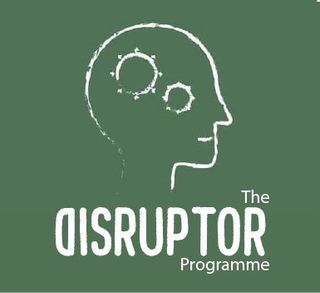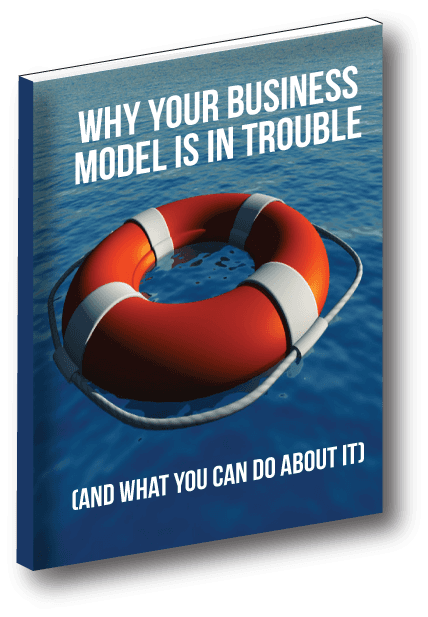Make your conference a highlight of the year
MAKE YOUR NEXT CONFERENCE
A HIGHLIGHT OF THE YEAR
Do your employees, affiliates or franchisees look forward to your conferences with the same enthusiasm as they look forward to Government budget announcements? Do they make it abundantly clear that they would rather have a tooth pulled, or lose their right arm, than sit through two or three days of the same ol’ same ol’? Here are our 7 rules for changing all that – and making your next conference the most eagerly-anticipated event on your franchise calendar.
Rule #1: Make it relevant
In other words, give your franchisees something they need and they can use. Make sure it’s aligned to your franchise’s strategy and business plan. We read an article recently that said there is one golden word that makes all the difference to any sales pitch – and we reckon it applies equally to franchise conferences. The article was talking about the language of increase – that is, improving your lot in some way. If you talk the language of increase – for example, how to make more money or save more money, or preferably, both – your franchisees will not only rate your conference more highly, but you will almost certainly start seeing better results after the conference. But how can you make sure your conference is relevant to their needs? The simple answer is to ask them. But they may not always be aware of what their real needs are, so you’ll also need to identify common issues and weaknesses by reviewing your franchise visit reports, franchisee audits and performance reporting.
Rule #2: Decide what you want to achieve not only during the conference, but after the conference
The “after” part is where most of us slip up. We can put loads of time and energy into creating a great conference, one that the franchisees will remember forever, but we will have wasted that time and energy if memories are all the franchisees take away. I’m not talking about franchise awards and free pens here. It is crucial that the franchisees don’t leave the conference without a clear plan of action for the future. Celebrity speaker John Shackleton taught me that. Not content to just get his audience highly motivated, and then have them lose that motivation almost as soon as they get back to the daily humdrum of the workplace, John goes the extra mile. He asks the members of his audience to write down what they most want to achieve, then if they want to, hand him the papers and their business cards. After the conference, he keeps in touch by email, following up on each member’s progress with their written objectives. I know several people who have stayed in touch with John for years, and have achieved amazing things as a result. Most franchisees and, believe it or not, many franchisors regard conferences as just a cost, in many cases only held because they are a requirement set out in the franchise agreement, a necessary evil. Ultimately, what you and your franchisees want to see out of your conferences is a good return on investment.
Rule #3: Be clear about the message
Once you understand what your franchisees’ needs are, and have developed your during-and-after objectives, it’s time to create your conference message. Be careful to focus only on the most important message. You may want to come up with a title or theme that encapsulates the message simply and single-mindedly. You don’t absolutely need a theme but a good one can reinforce the main message you want to get across and provide cohesion (see Rule #8).Try to avoid tacky, overused themes. I never minded Tina Turner’s song ‘Simply the Best’ until I went to a conference with that theme. Over two days, the song was played 27,000 times in an effort to motivate the delegates, employees of a bank that has now been swallowed up by another, bigger bank. The theme failed to inspire, and most of the delegates – including me – could not get the song out of our heads for days later and will, even twenty years later, cover their ears and run screaming if they catch even a few bars of the song.
Rule #4: Draw on the power of the group
Smart franchisors recognise that they don’t have the monopoly on good ideas. There is always a wealth of experience and knowledge in the room in the shape of the franchisee group. You often need to be, or hire, a good facilitator to draw out this experience and knowledge and encourage sharing. Stupid franchisors feel threatened by this. They’re afraid that if they allow franchisees to have their say, there will be complaints and dissention. Of course, this is always a possibility. But smart franchisors use open dialogue and shared ideas as tools for solving problems and creating a healthy culture. They believe it’s a crime to waste that group power. They actively foster interaction and franchisee contributions. They understand that franchisees don’t go to conferences to see someone delivering a speech they could just as easily watch from the comfort of home as a podcast, webinar or teleconference, they go to conferences to meet and share with other people. Some particularly enlightened franchisors take this a step further and use the power of the group to give back to the community in which the conference is held. They may support their local franchisee, contribute to a local charity, help to fix a local problem. It’s amazing what a group of like-minded people can achieve, and isn’t that one of the great strengths of franchising?
Rule #5: Keep it simple
By this, we certainly don’t mean dumb down the conference. But nor should you do what loads of speakers do – use the gobbildigook only used by people in your specialist field when talking to lay people. We heard an economist do that the other day and nobody else in the meeting had any idea what he was talking about. It’s essential to engage your audience, not alienate them. You do this by presenting concepts in a simple but interesting way. Keep the presentations short. Don’t invite clients, suppliers or business associates to speak unless you know they’re good speakers, they’re okay with speaking for 30 minutes or less, and they give you the opportunity to vet – and if necessary, alter – their presentation before the conference. When preparing your visual presentation, use the late Steve Jobs’ principle of using graphics rather than words, or keep the number of words per slide down to 15.
Rule #6: Have fun
Most good conferences combine formal with informal sessions, and individual with team-building activities. Highlights of conferences we’ve participated in over the past year have included dinner at the Skyline Restaurant at the top of the gondola 1500 feet above breathtaking Queenstown and Lake Whakatipu, a hilarious Murder Mystery competition, and skiing powder at the Hamner Springs club field. We are firm believers that it’s the fun parts of conferences that lead to real bonding and knowledge sharing between franchisees, and between the franchisor and franchisees.
Rule #7: Pay attention to the details
Some believe that the location and setting of conferences isn’t important as long as the rest of the elements are right. After all, you’re not supposed to be looking outside during conference, so what does it matter where you are? Actually it matters a lot. The first and totally immutable law of successful conferences is: Get away from work. The second law is: Don’t go where people don’t want to be. A few years ago, a franchise we’ve worked with decided to hold its conference at a Christian youth camp in the central North Island. It was a beautiful rural setting, with excellent facilities for conferences. But the franchisees didn’t rate it because it lacked the character and ambiance of the previous year’s venue – the now-defunct Hotel Du Vin – which was located in a very similar country setting to the camp (and has since become, by amazing coincidence, a school facility, albeit a pretty luxurious one). The basic architecture and the school groups also staying on the site made them feel, rather uncomfortably for some, as though they were back at school. And there was no bar! Which brings us to the third law: The quality and variety of the food and beverages is a more important ingredient of successful conferences than many organisers realise. As is the timing of it all. The fourth law says: Make sure you stick to the conference timetable. As Mussolini found, you can get away with almost anything as long as you get the trains running on time.
Rule #8: Break it up but make it flow
We read somewhere that a good meeting should make linear sense from start to finish. We take it that that means everything has to flow. Because the limit of our concentration is only 20 - 30 minutes, it’s important to break conferences up into easily-digested chunks rather than lay on a huge feast, but it’s just as important that these chunks – everything from presentations to workshops, from team building exercises to the awards dinner – flow along a logical path to an inescapable conclusion.
To break up your conference, we recommend a little bit of theory and a whole lot of practical - using workshops, games and roleplays to support the theory. We also recommend using guest speakers. Franchisees can get tired of the same old presenters, especially if they’re just you and your team. Sometimes it takes an outsider to break through. During one of my stints as a franchisor, we developed a new sales programme and provided our franchisees with training in it for two years. We reinforced the messages at every franchise meeting and conference. Then, for the next annual conference, we brought in a celebrity speaker, John Shackleton, and asked him to customise his presentation around our sales programme. John is a superb speaker, at the top in his field worldwide, and delivered a memorable speech, bringing clarity and humour to our programme in a way that only John can do. The feedback from our franchisees was overwhelming, but to our surprise, several of them said, “We wish we had been given all that information before.” They had, but it took an outsider, someone not from the franchisor’s team, to break through. John’s services cost us a few thousand dollars, but we saw it as an excellent investment. Alternatively, you might want to consider inviting your suppliers, advisors or even clients to speak, but check that they are good speakers first and vet their presentation well before the conference.
Rule #9: Plan and prepare, but don’t over-plan and over-prepare
As a rule of thumb, the planning and preparation for a conference will take five to ten times longer than the conference itself. If you’re a perfectionist, as Steve Jobs was, it will take even longer. He was regarded as one of the best speakers in the world, but he only got that way through years of practice. He would rehearse his presentations over and over in front of his long-suffering team until he was 100% satisfied with his performance and exuded confidence. If there was any room for criticism, it was that he was too slick. His speeches lacked spontaneity and any real interaction with the audience. The lesson: By all means, plan and prepare to make sure your conference goes without a hitch, but allow for openness and flexibility along the way. Let productive discussions and workshops take their own course.
For our final word, we would just say that if it’s worth doing, it’s worth measuring – meaning that every conference should be followed up straight away with a survey seeking feedback on how it went and what improvements can be made for next time.
This article was written by me, Robin
La Pere of No Ordinary Business and Franchise Consultants.
They say that public speaking is most people’s greatest fear – greater even than the fear of death. I can certainly relate to that. As a young man, I was shy and simply couldn’t bring myself to get up in front of an audience. But then I decided to become a teacher and my natural reticence was trained out of me. That’s when I discovered the magic of working with groups of people as a speaker, facilitator and coach. And when I started planning, organising and presenting at conferences, seminars and workshops – and helping my clients to make their events unforgettable.
Disruptor Service Request
Thank you for contacting me about The Disruptor service.
I will get back to you within 24 hours to arrange for your free Initial Consultation.
I will get back to you within 24 hours to arrange for your free Initial Consultation.
Oops, there was an error sending your message.
Please try again later
Please try again later
Relevant Articles
Subscribe to my newsletter
"Robin writes an e-letter which anyone interested in franchising should subscribe to – whether they agree with him or not!"
Dr Ken Billot, Franchise PhD
Dr Ken Billot, Franchise PhD
Every two weeks, I write an email newsletter designed for those in franchising and those considering getting into franchising. Topics include those you see in the articles listed above and are intended to be stimulating, helpful and challenging. These articles have helped me gain more than 100,000 followers on Twitter and worldwide connections on LinkedIn, but you can read them first by subscribing to the newsletter.
Subscribe by entering your email address here:
Contact Us
Thank you for contacting us.
We will get back to you as soon as possible
We will get back to you as soon as possible
Oops, there was an error sending your message.
Please try again later
Please try again later
Need to futureproof your business?
I offer these services to help you manage disruption, prevent stalling and promote innovation in your business:
- Threat and opportunity evaluation
- Business model generation
- Strategy planning
- Key business driver analysis and development
- Conference and seminar presentations
- Innovation workshop facilitation
- Business improvement
- Business re-engineering
- ‘The Disruptor’ Programme (see below)

Are you facing new or greater competition? Is your industry being disrupted? Is your business growth in danger of stalling?
The best way to predict the future is to create the future. In today’s fast-changing world, it’s disrupt or be disrupted. The good news is that small to medium sized businesses can be more innovative and agile than large corporations. The Disruptor Programme has been developed specifically to help SME leaders to:
- empower them with the thinking and practical skills to face change and lead a more agile and innovative business
- gain insights in how their customers see value and where opportunities exist to take advantage of this
- examine the company’s competencies and culture in order to identify opportunities to improve and innovate
To arrange a free personal Initial Consultation with me on how The Disruptor Programme can help you to futureproof your company, contact me now on +64 9 360 6063 or Skype Noordinary1262 or send me your email address and I will get back to you within 24 hours.
Disruptor Service Request
Thank you for contacting me about The Disruptor service.
I will get back to you within 24 hours to arrange for your free Initial Consultation.
I will get back to you within 24 hours to arrange for your free Initial Consultation.
Oops, there was an error sending your message.
Please try again later
Please try again later
FREE E-BOOK:GIVE YOUR BUSINESSA NEW LEASE ON LIFE
Download Why Your Business Model is in Trouble ebook
Thanks for downloading your free e-book
Oops, there was an error sending your message.
Please try again later
Please try again later
WHO AM I?
My name is Robin La Pere. I’m a business, franchise and marketing consultant with real
experience in these fields and a proven background in helping my clients to futureproof, grow or franchise their businesses. I offer a free Initial Consultation so we can get to know each other before we make the decision to work together.
Download your free e-book
LET’S GET STARTED!
Check out my Free Resources
Subscribe to my Free Email Newsletter
Schedule your Free Consultation


